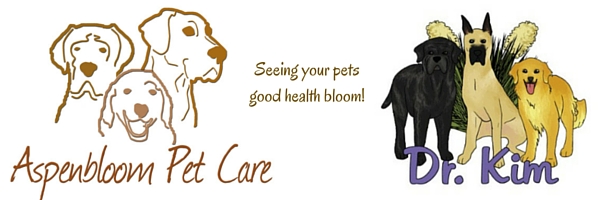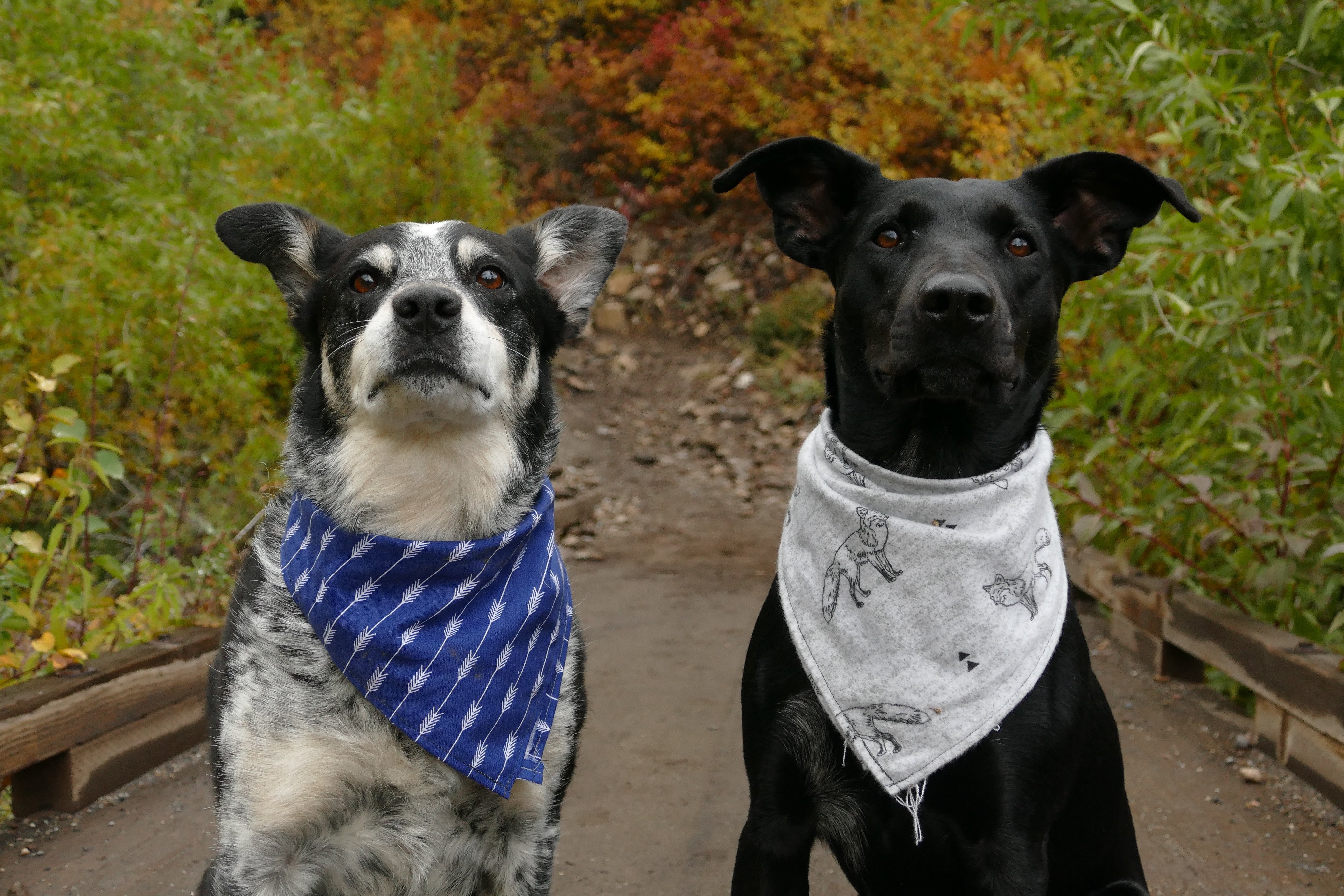Articles
This is something most people these days don’t even consider as contributing to the ill health of their pets. We’ve been very conditioned to have this common procedure done to our pets whether they have the opportunity to breed or not.
Commonly referred to as: Spaying, Neutering, and the worst possible name for it, “fixed“. They aren’t broken and in fact this is a major organ system not an “extra” body part. I’d venture to say they become “broken” rather than “fixed” after this organ system is removed.
In fact, we are actually ALTERING the very makeup of our animals when we remove a major organ system that also plays other vital roles other than reproduction. Altering our dogs contributes to health and behavioral issues far more than we may realize.
These links are provided for you to research out and ponder. Not to tell you what to do or that your choice is right or wrong. This is also definitely not with a focus on politics or mandates but rather on the whole health and well being of your dog. So let me share a quote that explains this hot button topic well:
“The problem is… we get into WHO is right and WHO is wrong vs WHAT is right and WHAT is wrong.” ~Coach George Raveling
On the links below you can learn a lot more about this, how to support your dog hormonally if they are altered, and also a possible “middle of the road” solution as well that offers yet another choice for you and your dog:
Is Spay Neuter Really the Best Choice for Your Dog?
Neuter/Spay: Avoid Long-Term Effects
Groundbreaking Study Released on Sterilization Alternatives
Spay/Neuter Risks in Large Breed Dogs
Pet Desexing
Alternatives to Spaying and Neutering
Are There Behavior Changes When Dogs Are Spayed or Neutered?
The Debate Over Neutering
Should Dogs Be Neutered?
UC Davis Golden retriever study suggests neutering affects dog health
The Spay/Neuter Health Denigration
Neutering Effects More Severe in Golden Retrievers Than in Labradors
Behavioral and Physical Effects of Spaying and Neutering Domestic Dogs(Canis familiaris)
Spaying and Neutering: Does It Cause Depression in Dogs and Cats?
Spaying and Neutering
Should Dogs Be Neutered?
Spay-Neuter References
Companion Animals as Targets of Impolite Human Comments
Spay-Neuter
Long-Term Health Effects of Spay-Neuter in Dogs
Early Spay/Neuter in the Cat
At What Age Should I Spay Or Neuter My Dog or Cat? What Are The Advantages And Disadvantages Of Neutering My Pet? Revisiting The Idea Of Early-Age Neutering
Determining the Best Age At Which to Spay or Neuter: An Evidence-Based Analysis
A Healthier Respect for Ovaries
Rottweiler study links ovaries with exceptional longevity
Castration Affected Skeleton Of Famous Opera Singer Farinelli, Archaeologists Say
For a more normal life for a pet: Partial Spay
Canine Chromosomes
A population study of neutering status as a risk factor for canine prostate cancer
Partial Spay
Rethinking Spay & Neuter
The influence of castration on the development of prostatic carcinoma in the dog
Canine ovariohysterectomy and orchiectomy increases the prevalence of ACL injury
The relationship of urinary incontinence to early spaying in bitches
Spayed and neutered Golden Retrievers are more likely to develop hypothyroidism
Long-term outcome of gonadectomy performed at an early age or traditional age in dogs
This One Procedure Could Reduce Your Pet’s Lifespan by Over 30%
Annual Vaccination and Spaying is a Deadly Combination!
Announcing a New Safer Alternative to Traditional Spaying
Spay and Neuter Medical Facts
The Cruelty of Castration: Risk vs Benefit
A Healthier Respect For Ovaries
Spay & Neuter Information
Commentary:
FOR THOSE CONSIDERING ALTERING OF THEIR DOG: This is from a Canadian vet, and his saga with his own dog post neutering at ~4-5 years old, and his eye opening experience, AND regret at doing it:
“Pax grew up as a healthy and strong puppy, and I thought I had natural health nutrition dialed in. However, life always has something new to teach us about dogs, especially when we “should know everything” As a service dog for my sleepwalking, Pax had to be neutered to be officially certified. Six months later, he started getting injured, which I now know was due to the absence of testosterone and related muscle loss. It took me a couple of very frustrating years to figure this out. I was worried and knew there was a missing piece of the puzzle. But I never give up! After a relentless search, I came across the research of two amazing colleagues, specialists, and scientists, Dr. Linda Brent, PhD, MBA, MS, BS, and Dr. Michelle Kutzler, DVM, PhD, DACT, and it all clicked! Pax was getting injured as a result of having no testosterone, which we now know is crucial in the muscular-skeletal health of male dogs. For decades, we have been causing damage by taking our dogs’ hormones away which has led to many health issues. Just thinking about how many dogs have been affected by the same problems as Pax makes me feel like I have no choice but to sound an alarm! What problems are caused by this issue? Based on research, the absence of sex hormones in dogs can affect muscles and joints, lead to cruciate ligament tears, thyroid gland dysfunction, organ failure, fearfulness, and aggression (due to brain inflammation), and increase the incidence of some types of cancers, such as lymphoma, hemangiosarcoma, and osteosarcoma. How can we prevent this from continuing? As a community, we need to promote hormone-sparing sterilization and inform people that conventional neutering and spaying procedures are no longer viable methods of preventing dog homelessness. About a month ago, I met with Dr. Michelle Kutzler and Dr. Linda Brent and decided to organize an information campaign to make the necessary shift. Tens of thousands of dogs are neutered and spayed conventionally every day, and suffering from the consequences of lack of hormones. I really believe we can change this together with you and all the open vets out there. Our dogs need our protection to live many happy and healthy years by our side. Thank you for considering being a part of the solution.”
Audios
with Dr. Myrna Milani…
Testicular Blindness
http://www.mmilani.com/564/meandering-with-myrn-40/
Those Crazy Humans!
http://www.mmilani.com/643/meandering-with-myrn-46/
Tipping Away from Fear
http://www.mmilani.com/601/meandering-with-myrn-43/
Feline Pedagogy
http://www.mmilani.com/618/meandering-with-myrn-47/
Making Sense of Scents
http://www.mmilani.com/1151/meandering-with-myrn-episode-143/
Semantic Contagion Redux
http://www.mmilani.com/1294/meandering-with-myrn-episode-167/
Hormone Support for Your Altered Pet
DISCLAIMER: All information contained on Aspenbloom Pet Care is intended for educational purposes only. It is not provided in order to diagnose, prevent or treat any disease, illness or injured condition of the body or pets and the author, publisher, and contributors accept no responsibility for such use. Anyone or their pets suffering from any disease, illness or injury should consult with their physician or veterinarian.
Please be sure to read our PRIVACY POLICY before contacting us. We want it to be with your knowledge and choice.
Copyright 2005-2025 Aspenbloom Pet Care

